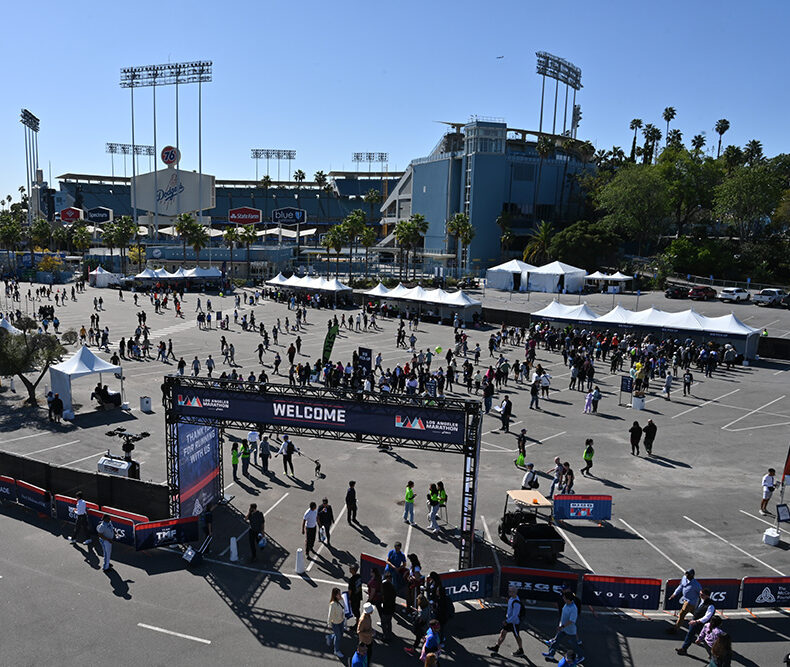I used to think that weight loss was a concern for a fairly small segment of the club: people like myself who’d taken up running in conjunction with a weight loss program. In my case, Weight Watchers got me about 25 pounds of the way to my goal and I joined the Leggers to keep going along that path. It’s still a main motivation for me today.
Imagine my surprise when a members survey we did several years later revealed that a large majority of members (I think it was over 75%) stated that weight loss was a goal they brought to the club. I mean, I look at you people every Saturday morning at 6:50 and I think you all look great!
I’ve been talking to Leggers about this for years, and I have come to appreciate a number of things about weight loss and fitness: call them lessons learned. Your mileage may vary, but these are themes and trends that continue to emerge.
YOU WILL LOSE WEIGHT – Following the Leggers training plan will cause you to lose weight, or at least to lose fat. I’ve seen a few sources state that loss over a season is 5-8 pounds all else being equal (in other words, you’ll tend to lose that much if you just continue eating as you did before you began). But of course those numbers don’t work for everyone. If you are doing it right you’re losing fat and gaining muscle. This means the numbers on the scale don’t necessarily capture your progress.
SCALES ONLY APPROXIMATE PROGRESS – I still weigh in, but I also know that progress can be indicated by the fit of a pair of slacks. Progress can also be something as elusive as just feeling better. Accurate numbers (calculating body fat, for example), is probably something most of us don’t have time or money for since it involves working with an MD or a Dietitian. So do step on the scale, but know that’s only one corner of the picture.
PROFESSIONAL HELP CAN BE HELPFUL – I’ve known several Leggers who have worked with trained dietitians and if you have the means that’s certainly an excellent way to approach the issue. Being able to really talk with a medical professional seems to offer insights. Most of us opt instead for a known program. Two good examples are Weight Watchers and Noom, both of which represent two general approaches to weight loss.
YOU COULD FOCUS ON CALORIES IN, CALORIES OUT — Weight Watchers is the classic “calorie counting” model. It’s been a few years since I worked with their program, but their original idea was about counting specific kinds of food. In recent years they’ve modified their program to focus on modifying unhealthy behavior, pushing members to eat more of health-promoting food. They work on a subscription model, but you can also track calories using a free app like LoseIt. Any such effort is a great idea because it makes you focus on what you are actually eating, which is the beginning of “mindful eating.”
MINDFULNESS IS ANOTHER GREAT MODEL — A subscription service like Noom approaches the issue from the opposite end, asking what behaviors lead to better health and better weight. They boast about the fact that you’re NOT counting calories as a selling point. I tend to think that both are important. If you want to get some of the benefits of their program without a subscription, check out the book FOOD RULES by Michael Pollan. It’s full of simple ideas like, “Don’t eat anything your great-grandmother wouldn’t recognize as food,” to help you understand healthy eating.
BEWARE OF FADS AND FOOD SALESMEN — The objective of weight loss and healthy eating should be to build habits you can sustain. Don’t fall for fads and don’t sign on for a diet wherein you’re being asked to buy products to accomplish your ends. Fads end, and food salesmen are motivated to keep selling you their product. In the long run you can’t live that way.
SLOW AND STEADY WINS THE RACE — Just like the Leggers training program, weight loss and healthy eating are things that you build over time. We take six months to bring somebody from Beginner to Marathoner, and that’s the way to think about this journey as well. Crash diets cause crashes. And I think that if you listen to your body it’s going to tell you what you need to be eating and drinking to achieve your goals. By now you probably already know what you can and can’t get away with on Friday night before a long run!
RECOVERY AND LONG TERM — Once you’ve gotten through a season I hope that you’re up for more. One thing we do see is that after a long training season people do become used to a certain level of caloric intake, and if they stop training there can be a rebound in weight. This isn’t terrible because it’s natural to see some fluctuation in weight and fitness if your calendar includes major endurance events. You do need to recover, and that can take time. Just remember that the Leggers are a year-round program. There’s always someone taking off from 1450 Ocean around 7AM on Saturday morning.
When the season’s over after your marathon or other event you can throttle it down a bit and recover, but keep coming back because we’ll be here waiting for you. Keep after it and you’ll get there in the end.





